How to Get Your Dog to Stop Digging
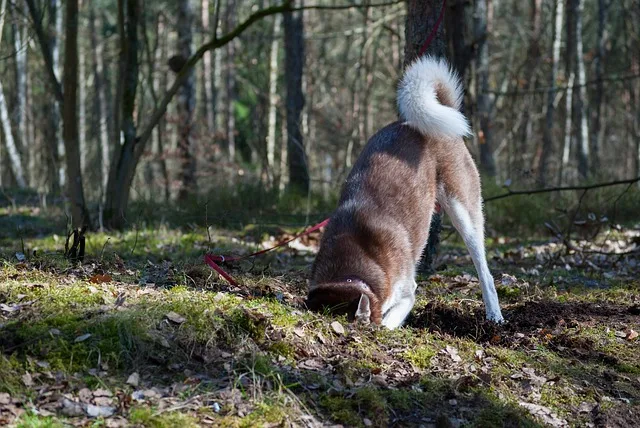
Digging is a common habit in dogs. But it can become troublesome if it leads to destroyed gardens, damaged fields, or lost pets. If you’re thinking about how to get your dog to stop digging. This piece gives effective methods to address this habit. By understanding the root causes and adopting the right methods. you can change your dog’s digging habits and keep a peaceful living environment. It will be helpful for both you and your furry friend.
Introduction
Digging is a normal activity for dogs that can be traced back to their wild ancestors. While some digging is normal and healthy, excessive digging can be a sign of deeper problems. This blog aims to help dog owners understand why dogs dig. It also provides useful tips to handle and change this behavior.
Understanding Digging Behavior: Why do dogs dig?
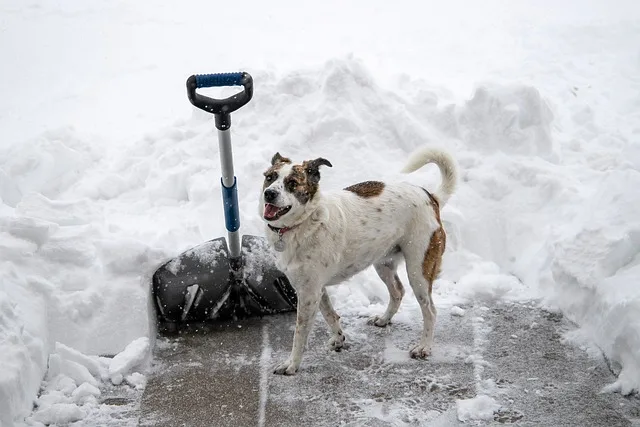
Dogs may engage in digging activities for different reasons. Understanding these reasons can help you handle the behavior more effectively. Some popular reasons for digging include:
- Seeking entertainment and mental stimulation
- Trying to escape or find a hidden object
- Creating a den or shelter
- Burying or retrieving prized possessions
- Cooling down in hot weather
- Alleviating boredom or excess energy
Types of dog digging behavior
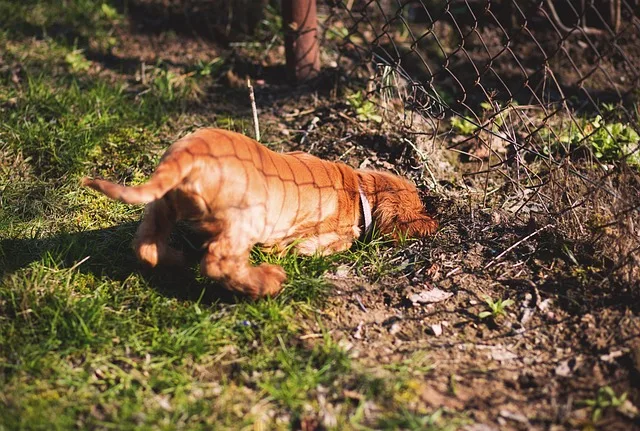
Digging behavior can vary among individual dogs, but there are some typical trends to be aware of. These include:
- General digging: Dogs may dig randomly in various areas. It includes parks, lawns, or even indoor places.
- Specific digging: Some dogs have a particular spot they constantly dig in. Such as near fences or under trees.
- Holes and trenches: Dogs may dig deep holes or long trenches, often as a way to cool down or make a comfy spot to rest.
See also: 4 Best Steps on How to Get Dog Poop Out of Carpet: A Guide
Identifying the Root Causes of How to get your dog to stop digging
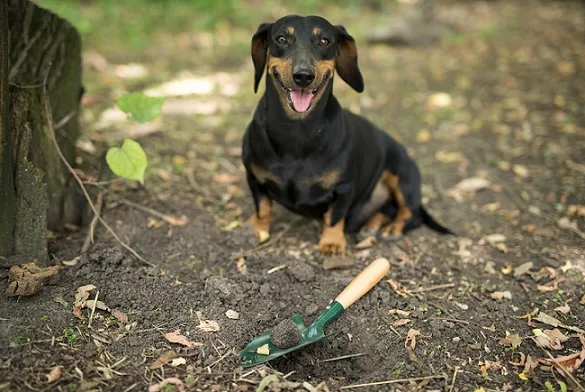
To successfully handle your dog’s digging habit. It’s important to discover the root reasons. Common root causes include:
1. Boredom
Dogs that lack mental and physical excitement may turn to digging as a way to enjoy themselves. Boredom can come from insufficient exercise. Lack of engaging toys, or a dull environment.
2. Excess Energy
High-energy dogs that don’t receive enough exercise and fun. They may put their extra energy into digging. Regular physical exercise is crucial for a dog’s general well-being. It can help avoid annoying digging behavior.
3. Natural Instincts
Some dog breeds have a natural tendency to dig due to their background. Terriers, for example, were traditionally bred for digging and catching small game. Understanding your dog’s breed traits can help tailor your method. It also helps in managing digging behavior.
4. Separation Anxiety
Dogs with separation anxiety may turn to digging as a way to deal with the stress of being left alone. If your dog displays other signs of separation anxiety. Such as damaging chewing or excessive barking. It’s important to address the anxiety problem alongside the digging behavior.
You can also read our article related to separation anxiety
How to Get Your Dog to Stop Digging: 12 Best Effective Ways
1. Providing Adequate Exercise: Regular Physical Exercise
One of the most effective ways to avoid digging behavior is to get your dog enough exercise. A tired dog is less likely to take part in harmful actions.
Aim for daily walks or runs, based on your dog’s breed and energy level. Engage in engaging play sessions, such as fetch or tug-of-war, to burn extra energy. Consider putting your dog in agility training or other physically demanding activities.
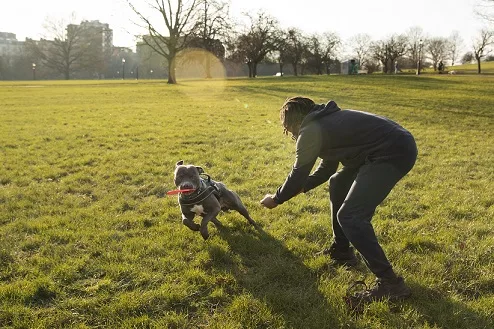
2. Mental Stimulation
Mental training is equally important as physical exercise. Engage your dog’s mind with puzzle toys, treat-dispensing toys, or food games. Incorporate training lessons into your daily routine. It helps to push your dog and provides mental activity.
See also: Best 6 Effective Ways on How to Get My Cat to Stop Meowing
3. Designated Digging Areas
Creating a specific digging place for your dog can help refocus their digging habits. By offering an accepted spot to dig, you can protect your yard and teach your dog proper behavior. Here’s how to go about it:
Choose a good place in your yard for the digging spot. Consider a place with soft dirt or sand.
Dig a small pit or area and loosen the dirt to make it more attractive for your dog. Encourage your dog to explore the digging spot by hiding a toy or treat to catch their interest.
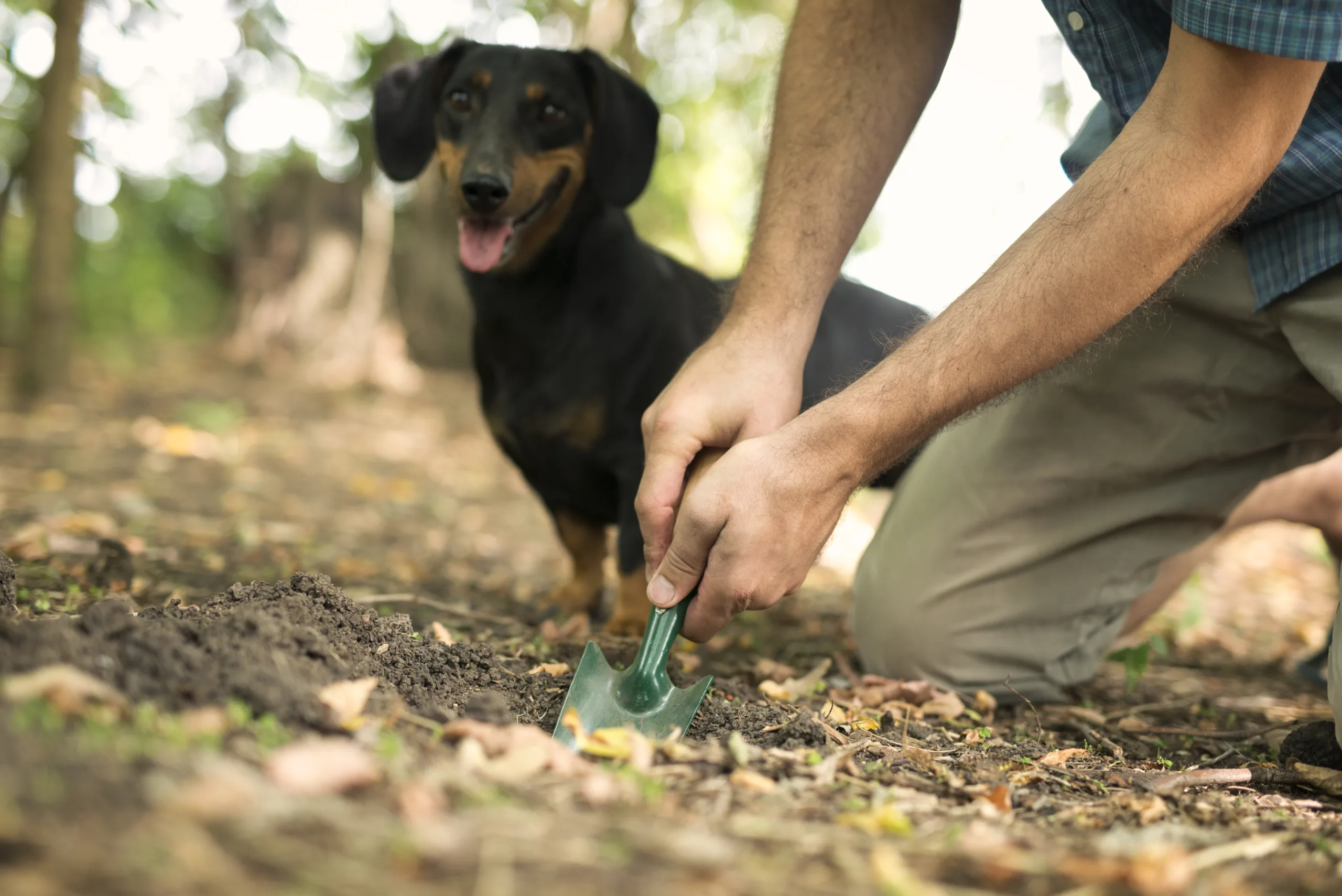
4. Encouraging the Use
Whenever you catch your dog digging in an unwanted area, move them to the assigned digging spot. Praise and reward your dog whenever they dig in the proper place. Make the designated digging area more appealing through toys or treats for your dog to find.
See also: 10 Ways on How to Stop My Cat from Throwing Up After Eating
5. Positive Reinforcement
The positive reward is a crucial aspect of teaching and changing your dog’s behavior. It involves giving desired actions to encourage their repeat. When it comes to stopping digging behavior:
- Reward Appropriate Behavior: Whenever your dog refrains from digging in restricted areas. Or they use the designated digging spot. Provide instant praise and prizes. Use food, vocal praise, and touching to encourage the desired behavior.
- Avoiding Negative Reinforcement: Using punishment or negative rewards can be useless. It can harm the bond between you and your dog. Avoid the following:
- Punishment: Physical punishment or strong scolding is not useful. It can cause fear and worry in your dog. It may lead to more damaging actions or even violence.
- Yelling or Scolding: Yelling or cursing your dog after they’ve already dug a hole is useless. Dogs link penalties with their present action, not with past actions.
Instead of beating your dog. Focus on changing their behavior and give positive feedback. When they make the right choices.
See also: 10 Best Ways on How to Stop My Cat from Peeing on My Bed
6. Interactive Toys
- Offer engaging toys to keep your dog involved and mentally busy.
- Puzzle toys that require problem-solving can help shift your dog’s attention from digging.
- Provide lasting chew toys to fulfill your dog’s natural desire to chew and eat.
7. Gradual Departures for Managing Separation Anxiety
- If your dog’s digging behavior is linked to separation anxiety. Treating the anxiety problem is handy. Consider the following steps:
- Practice letting your dog alone for minute times. Then gradually increasing the length over time.
- Make exits and landings low-key to avoid causing worry.
- Provide your dog with a safe and comfy place, such as a box or marked area.
8. Calming Techniques for How to Get Your Dog to Stop Digging
- Use calming tools. Such as pheromone diffusers or calming music. It helps to create a soothing setting for your dog.
- Consult with a doctor about possible medicines or natural supplements. It may help handle separation anxiety.
9. Using Barriers or Fencing
If your dog has a specific area they dig in, you can use barriers or fences to block entry to that spot. Consider the following:
Physical Barriers
- Install chicken wire or fence around places where your dog frequently digs.
- Use colorful fencing or landscape features to create a visual deterrent.
- Ensure the walls are safe and can withstand your dog’s attempts to dig.
11. Digging Deterrents
Different natural and manufactured deterrents can prevent digging behavior. Here are some choices to consider:
Natural Deterrents
- Bury rocks or stones in the areas where your dog tends to dig. The uneven surface can discourage digging.
- Sprinkle chili pepper, lemon peels, or coffee grounds around the digging areas. Dogs usually hate the smell and taste of these substances.
Commercial Deterrents
- Some pet stores offer dig prevention sprays or powders that are meant to stop dogs from digging.
- Follow the steps on the product and apply the deterrents to the places your dog is prone to dig.
12. Seeking Professional Help for How to Get Your Dog to Stop Digging
If your dog’s digging behavior continues despite your best efforts. It may be helpful to seek advice from a professional dog teacher or behaviorist. They can gauge your unique case. They also provide personalized methods to handle the problem.
See also: How to Stop My Cat from Bullying My Other Cat: Top 10 Ways
Conclusion
Understanding why dogs dig and adopting successful tactics is helpful. It can help you handle and change this behavior. By providing adequate exercise, mental activity, and positive rewards. You can guide your dog toward proper digging behavior. It also helps to keep a peaceful living environment. Remember to be gentle, steady, and understanding as you work with your pet friend.
See also: Top 10 Dog Separation Anxiety Symptoms: Basic Understanding
FAQs on How to Get Your Dog to Stop Digging
Q1: How long will it take for my dog to stop digging?
A1: Understanding digging behavior is not an easy process. The time it takes to stop digging behavior can vary based on the dog and the underlying reasons. Consistency and good feedback are key. With proper training and guidance. You can see changes within a few weeks.
Q2: Can I punish my dog for digging?
A2: Punishment is not advised as it can cause fear and worry in your dog. Instead, focus on changing the behavior. Give positive feedback, and make marked digging places.
Q3: What breeds are more prone to digging behavior?
A3: Certain breeds. Such as terriers, dachshunds, and beagles, have a higher tendency for digging. It is due to their genetic predispositions. Understanding your dog’s breed traits can help you meet their unique needs.
Q4: Should I fill the holes my dog has dug?
A4: Filling the holes your dog has dug is not advised as it may not address the root reasons for the digging behavior. Instead, focus on shifting the behavior of dogs.
You can learn more details about the articles: Click Here
You can also read our most hot topics related to dogs and cats: How to Stop My Dog from Biting When Excited: 7 Best Ways
See also: How to Get Dog Hair Out of Your Car: 10 Most Effective Ways








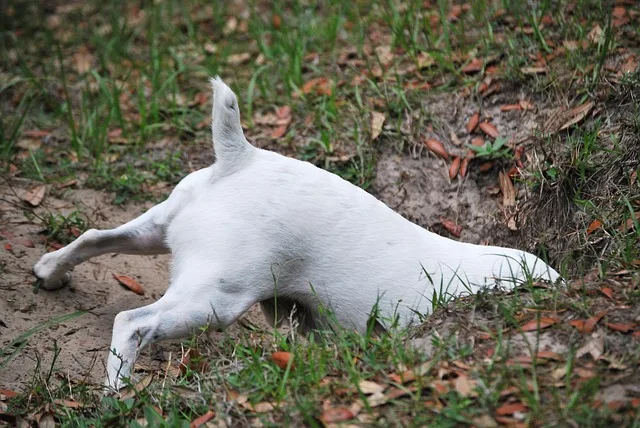




3 thoughts on “How to Get Your Dog to Stop Digging: 12 Best Effective Ways”